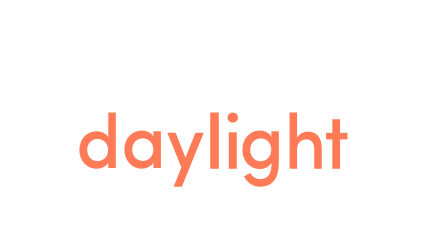Is Daylight suitable for you?
Before you sign up for Daylight, please make sure you are clear about what it is and whether it is suitable for you.
If you have any questions, please contact our team at hello@trydaylight.com.
Daylight may be suitable for you if:
- You are experiencing difficulties with worry and anxiety or Generalized Anxiety Disorder symptoms
- You are able to read, hear, and understand English
- You have stable physical and mental health
- You have regular access to a computer or mobile device with periodic access to the internet
Daylight is a fully automated digital worry and anxiety improvement program based on CBT
Daylight is a fully automated digital worry and anxiety improvement program based on techniques from cognitive behavioral therapy (CBT) for worry and anxiety. CBT techniques have been studied in many different formats, including in-person therapy, self-help books, and digital programs. These techniques have been shown to be effective in helping many people reduce their worry and anxiety1-4.
Daylight IS NOT…
Daylight is not a replacement or substitute for other medical or mental health treatment.
Daylight is not intended for crisis support
- In the United States, call 911 or go to your nearest emergency room. For the National Suicide Lifeline call 988.
- In the United Kingdom, call NHS 111, call your GP, or go to your nearest A&E department.
- For other regions, please contact your local emergency services, or go to your nearest hospital emergency room.
Daylight may not be suitable for everyone.
Daylight is not a 'magic bullet' solution for worry and anxiety.
Daylight and existing health conditions or pregnancy
Daylight and children
The Daylight program is not recommended for people under the age of 18.
Daylight and risks
Daylight includes a technique called “Tense & Release” that involves tensing and relaxing muscles. If you have pre-existing muscle pain or experience pain while tensing your muscles, you can modify this exercise (for example, by skipping the tensing of muscles) or skip it altogether. Inform your healthcare provider if need assistance with muscle pain. Daylight includes a technique called “Worry Exposure” that should not be used to address or process fears or problematic behaviors related to traumatic experiences or memories. Contact your healthcare provider if you need help with difficulties related to trauma.
Technology requirements
You can access Daylight on devices running Android or iOS. Supported web browsers for signing up to access Daylight include Chrome, Safari, and MS Edge.
References
1 Andrews, G., Basu, A., Cuijpers, P., Craske, M. G., McEvoy, P., English, C. L., & Newby, J. M. (2018). Computer therapy for the anxiety and depression disorders is effective, acceptable and practical health care: an updated meta-analysis. Journal of Anxiety Disorders, 55, 70-78.
2 Carpenter, J. K., Andrews, L. A., Witcraft, S. M., Powers, M. B., Smits, J. A., & Hofmann, S. G. (2018). Cognitive behavioral therapy for anxiety and related disorders: A meta‐analysis of randomized placebo‐controlled trials. Depression and Anxiety, 35(6), 502-514.
3 Loerinc, A. G., Meuret, A. E., Twohig, M. P., Rosenfield, D., Bluett, E. J., & Craske, M. G. (2015). Response rates for CBT for anxiety disorders: Need for standardized criteria. Clinical Psychology Review, 42, 72-82.
4 Stewart, R. E., & Chambless, D. L. (2009). Cognitive–behavioral therapy for adult anxiety disorders in clinical practice: A meta-analysis of effectiveness studies. Journal of Consulting and Clinical Psychology, 77(4), 595.
5 Power, K. G., Simpson, R. J., Swanson, V., Wallace, L. A., Feistner, A. T. C., & Sharp, D. (1990). A controlled comparison of cognitive-behaviour therapy, diazepam, and placebo, alone and in combination, for the treatment of generalised anxiety disorder. Journal of Anxiety Disorders, 4(4), 267-292.
6 Otto, M. W., Smits, J. A., & Reese, H. E. (2006). Combined psychotherapy and pharmacotherapy for mood and anxiety disorders in adults: review and analysis. Focus, 12(2), 72-214.
